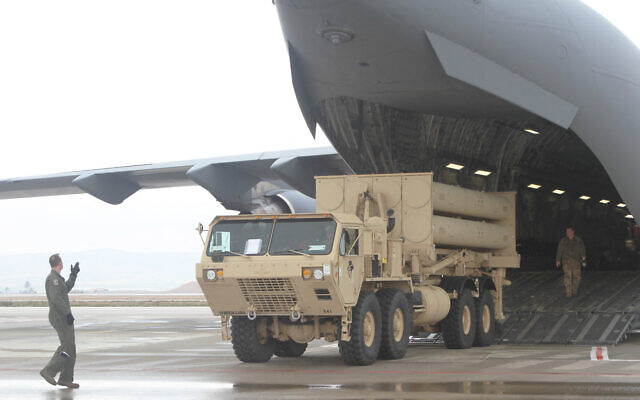The United States could send its Terminal High Altitude Area Defense, or THAAD, missile defense system to Israel, in a signal of growing concern over tensions in the Middle East. That’s in part because Iran is ratcheting up its rhetoric and seeking ways to presumably lock down a potential Israeli response to recent regional flare-ups, as U.S. officials look for ways to bolster Israel’s defensive capabilities.
Escalating Regional Tensions
The threat posed by Iran and its regional allies is a second potential reason for mobilizing the THAAD system. Rising tensions between Israeli forces and Iranian-sponsored forces in Lebanon and Syria have heightened fears about deeper regional conflict. The ongoing development of Iranian missile programs and its networks of proxy forces are a serious threat to Israel’s national security.
Iran has issued a warning to Israel: do not attack in retaliation for its involvement in regional skirmishes, or prepare to face Iranian force.
As advanced missile systems stake Iranian claims against Israeli cities, Israel’s and American allies have a decisive priority: add more missile defense.
What is the THAAD Missile Defense System?
THAAD missile defense system is one of the world’s most sophisticated missile interception platforms. The THAAD intercepts short-, medium-, and intermediate-range ballistic missiles at all stages of their terminal phase, that is, at very high altitudes, inside as well as outside the atmosphere. Its deployment to Israel would add another layer of protection on top of Israel’s already deployed missile defense systems, such as Iron Dome and David’s Sling.
Recently, the U.S. deployed its THAAD systems in South Korea to deter North Korea, which have so far been highly effective in detecting high-velocity missile threats.
Israel’s Missile Defense Network
Israel already possesses a good defense missile system, with the Iron Dome with its power to intercept short-range rockets and David’s Sling targeting medium- to long-range missiles. It increases the pressure on Israel’s improvement of defensive capabilities since the sophistication of Iran’s missile arsenal is now made up of more advanced and long-range missiles.
The THAAD would complement Israel’s multi-layered defense structure, providing a layer of protection that no other systems have been able to cover at higher altitudes.
The U.S. deployment of THAAD to Israel may also serve as a deterrent to the Iranian missile threat because any person attempting to launch missiles against Israel would know they would be welcomed with enhanced and strengthened Israeli defenses.
U.S.-Israel Security Cooperation
This delivery of THAAD forms part of the bigger security cooperation between the U.S. and Israel. The two share intelligence, military resources, and collaborate on many defense programs. Secretary Blinken said that in light of recent increases in tensions with Iran, America strongly sustains its commitment to Israel’s security.
Discussion over the THAAD’s deployment is still in its initial stages, and the situation is quite fluid. However, for both countries, the processes of timing and logistics seem to be under consideration, although a system will only be successful and able to secure in Israel with the assistance of U.S. personnel to help conduct and maintain the system.
Iran’s Response
Iran has opposed military assistance to Israel from the U.S. consistently, as it believes that this undermines its position in the region. The Iranian government has warned publicly that any Israeli retaliatory attacks regarding recent clashes could lead to a military response from Tehran. Adding THAAD to the mix, both the United States and Israel are very likely to increase the complexity of geopolitics in the Middle East.
The region’s allies with Iran have also demonstrated a willingness to engage against Israel if a confrontation breaks: Hezbollah and other militias in Syria and Iraq. Any new defensive measure that will be adopted by Israel would mean holding it essential for stability and deterrence.
Conclusion
As if the high tension that continues to build in the Middle East were not enough, what is now in the cards is that the United States would be sending the THAAD missile defense system to Israel. Since Iran is looking for every possible reason to deter possible strikes in return from Israel, the stationing of THAAD would be a considerable enhancement of Israel’s defensive systems, allowing it to protect itself against advanced missile threats.
While this might be a step toward enhancing Israel’s security, it could at the same time create already strained tensions into full-blown crises. For this reason, as this situation plays out, both the U.S. and Israel are playing it tight: there is too much at stake for either country to act rashly, as the repercussions would devastate the greater Middle East.
Image Source












1 Comment
Thank you for another great article. Where else could anybody get that kind of info in such a perfect way of writing? I’ve a presentation next week, and I am on the look for such information.